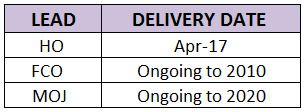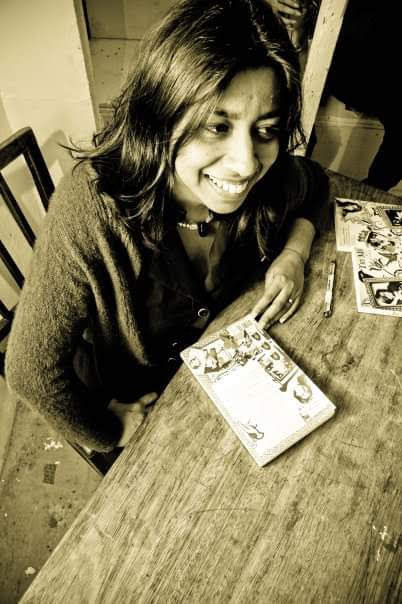Link
#FarahDamji #CriminalJusticeSystem.#WomenRights #Women
0 notes
Text
Supporting Women Offenders Affected by Violence and Abuse and Famo
We know that many victims of sexual, physical and emotional abuse can also be drawn into offending behaviour'. The proportion of female prisoners that report experiencing some form of abuse during their childhood is twice as high as among male prisoners with many reporting that their offending was to support their partner or someone else's substance misuse.
We are working with regional areas to encourage a more effective joined up approach to addressing these complex needs. Different models are under development in Greater Manchester, Wales and London. These models aim to develop a whole system approach to managing female offenders which can help improve victim outcomes as well as create cost savings.

The National Offender Management Service" published "Better Outcomes for Women" earlier this year which sets out the commissioning principles for developing services for women in the criminal justice.
Sexual Harassment in Public Places system
We will also be rolling out a new helpline for female offenders so they can obtain support whilst in custody and on release. This follows a pilot helpline set up at HMP Holloway by Women's Aid and Refuge. We will continue to build on this work to ensure that female offenders who are also victims of abuse can access the help they need to rebuild their lives and the (sic) break the cycle of offending."
Sadly the helpline does not work. The funding for the visionary work in Wales Greater Manchester and London has been pulled. Plans for five small community prisons for women have been put on hold, following the caravanserai of Justice Secretaries and Prison and Probation Ministers.
Specific to the Justice Remit within the Government's Strategy we find this table:

Improving the Criminal Justice Response Monitor the implementation of the new domestic violence offence of coercive and controlling behaviour in an intimate or family relationship and ensure that professionals have the tools and expertise needed in this area. Continue working with international partners to change discriminatory laws and practises and to promote adoption of legislation to criminalize abusive behaviour and better protect victims. Supporting Victims and Female Offenders Continue to explore ways that vulnerable victims and witnesses can give evidence from a location away from the court and consider rolling out pre-trial recorded cross-examination in VAWG cases Review the implementation and impact of legislative changes in Northern Ireland which introduce the 'Nordic' approach to prostitution (which criminalises all purchasing of sex and decriminalises all selling)" by Support female offenders who are victims of violence and abuse to receive the interventions they need to stop offending and move into recovery for example by considering the models under development in Greater Manchester, Wales and London Roll out a new helpline for female offenders who have been victims of violence or abuse so that they can support while in custody and on release following the pilot helpline delivered at HMP Holloway"

Criminal Justice: Women in the criminal justice system face sexual harassment from the moment we are arrested. The language of police stations, of the custody suite and the arrest and detention process creates unwanted sexual tension and harassment. Women are frequently rubbed down for a search by a. woman officer but in front of her male colleagues. Most women will not know they have the right to be searched in private, away from the staring male police staff and civilians. This is just one way the justice system ignores the rights of women, and our most fundamental right to be treated with dignity.
The police do not particularly know what to do with allegations of domestic violence, victims of crime who then are accused of committing crimes. HMIP's (Her Majesty's Inspectorate of Police) most recent inspection (March 2018) clearly shows that even when a prompt response is called for in response to a domestic violence incident reported to 999, the police take on average 15 hours to respond. The relationship between women who have been victims of crime and who are then accused of crimes is heavily under researched. They fail to see the relationship between a woman who has committed a crime after years of domestic abuse and sexual harassment who has, until then been a victim. The woman whose complaints have not previously been taken seriously now.
Sexual Harassment in Public Places finds herself a perpetrator of crime and under scrutiny for very different reasons. The criminal justice process is entirely adversarial. Investigating officers in all criminal cases have a duty to disclose everything that will undermine the Crown's case or to assist the defence case, yet they are supposed to put together a case that will survive the rigor of the defence barrister and ultimately, secure a conviction. Numbers trump justice, to obtain conviction targets and there have been repeated problems with disclosure, downloading evidence and the veracity of police's statements and actions when dealing with women defendants.
Amelia's Story: Amelia is 20 and a mother of 2 young children who she has lost to the care system. She is serving a sentence for perverting the course of justice. She has been in care since she was 10. Her partner attacked her with a motorbike helmet she went to the police and gave a statement to them. He left the house. She wanted to press charges against him and was ready to go to court. Then he approached her again and said that he was sorry and if she gave him another chance, he would never attack her again. She went to the police and withdrew her statement. She never heard from him or saw him again. The police then charged her with perverting the course of justice. Her solicitor told her to plead guilty because she would not likely to get a custodial sentence this being her first offence. The 18 hours eh was in police custody afforded her just enough time to pack up and move her children and herself out of the house. She pleaded guilty and the judge was simply not interested in the abuse she had suffered, the violence which had been perpetrated on her by her former partner, of which there was evidence. He ignored the fact that she was a vulnerable care leaver. His view was, she had broken the law, and she had to be punished. Her children are now in care and she is worried about how she will rebuild her life and her family when she is released from jail. She said she felt intimidated by the judge and was not sure how to conduct herself; she had never even been in a courtroom previously. Whereas the Police should have protected her, they chose to persecute her and she has ended up with a criminal record. Her ex partner subsequently attacked another woman. The case went to court and he was found guilty. He is serving a 12-year prison sentence.

Amelia says "I felt horrible in the court room, completely alone and unheard. I don't know why the judge was so horrible to me, he was awful. He just believed everything that the police said about me - it was not true. I told him I was scared of my ex that I just wanted to get away from him. They said they could protect me but he kept showing up at my house- they never came when I called them. He knew nothing at all about me, he saw a girl who had been in care and so I must be trouble and lying - he was stereotyping me. He tried to scare me all the way through the case. He knows nothing about who I am. This does not feel like justice."
In Custody Because the women's estate is not categorised in the same way as the male estate, there are many women in prison who are not violent or serious offenders, however we end up incarcerated with the worst and most dangerous sex offenders. On one house of 19 women, three have been convicted of serious sexual offences.
FOLLOW THE REAL FARAH DAMJI - MY WRITING, MY ART AND MY ADVENTIURES - https://farahdamji.co.uk/
0 notes
Text
Beyond Reason – By Farah Damji
The Treatment of Women in the English Criminal Justice System , sponsored by Baroness Uddin of Bethnall Green.
This one year call for evidence and best practise for reducing reoffending and providing a humane, rights based approach to the 4000 incarcerated women in English prisons, is a call from women prisoners, on licence in the community and others living with the effects of being somehow involved in the criminal justice system, for improvement via a judge led inquiry.
Information will be disseminated via a prison magazine with content and case studies from women who have or continue to suffer injustice called The View. This will be celebrated at am event in Parliamnet on. XX DEC 2019 at an invitation only conference of the major stakeholders and service users with lived experience.

The data mining and gathering process will draw from the experiences of women in prison and on license in the community, and women affected by all aspects of the criminal justice system, from arrest and custody, through arraignment and court proceedings, into prison and resettlement , particularly the use of Approved Premises and the Parole process with a view to identifying how these various stages are affecting women in ways more significant to men and causing greater harm . We are starting with women because of the sharp increase in the number of women being recalled that clearly shows the system is failing them. 131% more women were recalled to prison in the year 2017 to 2018, compared with 28% more men. Then they are stuck in the interminable and opaque processes of the Parole Board and it can take upto 18 months for women to be granted an oral hearing and be released. Once appropriate systems and justice reinvestment into credible mental health services and community services is established, this model can be delivered across the male estate of approx. 85 000.
It appears that no Public Sector Equality Duty Gender impact assessment was ever completed by HM Government, when former Lord Chancellor Chris Grayling’s controversial Transforming Rehabilitation reforms were implemented. Women appear to be the human collateral, because more women are being returned to prison after release, on recall as National Probation Services just can not manage them. The service was split and is due to be reintegrated, but we are asking for root and branch reform of NPS and all the other statutory agencies that are dealing with women and a proper, accountable monitoring body to regulate and investigate issues that arise on women’s prisons, which are very different from those that arise in men's prisons. Self harm is at epidemic scales, deaths of women in custody are at the highest ever recorded rates. Our babies are dying due to the lack of care and accessible, decent healthcare services The cost to the NHS and Ministry of Justice in providing health care contracts to private companies and NHS Foundation Trusts exceeds £600m, but women cannot access those services.
The outcomes for women affected by the criminal justice statutory services is alarming, Prof Graham Towl confirmed last week that those effects continue long after release from prison, women on license in the community in the community under Probation, are 3 times more likely to commit suicide. NPS is a public protection agency but simultaneously acts as a quasi social service agency, yet there is no proper complaints or regulatory system. The Prison and Probation Ombudsman described the Probation Service's own complaints process as non compliant with its own processes and protocols. Where are women supposed to go, if the prison and probation complaints systems are not fit for purpose? Access to Justice policies have been superseded with Access to Digital Evidence policies which are non compliant with the Human Rights Act in that prisoners are simply not able to have their legal cases on a functioning laptop and all information has to be vetted by the prison security department, where the police operation of the prison service also sits. This is a breach of prisoners’ Art 5 and 6 rights, they cannot properly prepare for legal cases while remanded and the express legal privilege between a client and a solicitor could be broken by this policy. We have asked Prof Nils Meltzer to look at whether the Justice Inspectorates are compliant with their OPCAT obligations and to ask for an urgent inspection by his team, as the UN Special Rapporteur on Torture and Inhumane Treatment.
The average life expectancy of a woman in an English jail is 54 because healthcare provision is so bad and also inaccessible. There are no age specific clinics such as menopause clinics and with an ageing population, this needs to be addressed. The prevalence if Hep C and HIv is at epidemic rates, yet there is no specialist care and the over prescription if anti depressants and anti psychotic medication is alarming and far exceeds safe levels but women cannot access mental health talking therapies, so turn to self medication.

The effects of incarceration on women heavily outweigh those felt by men, because if societal and cultural norms in that women are overwhelmingly the caregivers for any small children and less that 1% of children will stay in the family home if a mother is incarcerated. Women are more likely to be incarcerated for a minor first offence (Prison Reform Trust , here is the link.
The purpose of this year long survey is to gather information and make an economic case to HM government and related departments within it, Home Office, Health and Social Care, DCLG and MoJ , to consider a program of radical justice reinvestment and decarceration, underpinned by accessible and decent mental health provision, via diversion through the courts and making judges responsible, as in the US Drug and DV Courts for ensuring that the woman is supported and compliant with the terms of a community order imposed by the Court. By diverting even half of the money into existing and newly formed mental health centres in the community, the exorbitant costs to the public purse of repeat reoffending , about £13bn a year will be dramatically reduced. We are working with a renowned economist to make the social impact and financial case for this approach (Guy Battle of the Social Value Portal).
There are five streams for this process and evidence will be gathered in 5 meetings from Dec 2019 to Dec 2020, from women with lived experience, their families, legal advisors and supporters, children and partners of women in the criminal justice system.
What is the process now? How is it letting women down? Is it gender informed?
What works? Where is the evidence for it?
What would it cost?
What would the benefits be?
What needs to be done? What next?
Following this exploration, we intend to ask for a judge led inquiry to probe our findings by live evidence and information and then to make binding recommendations to build a decent, safe and humane justice system for the most vulnerable women in our society.
Key stakeholder(all TBC)
Reece Thomas Watson Solicitors, Uprise Policy Forum, Courtenay Griffiths QC, Counsel to the committee Prof Nils Melzer, UN SR for Torture and Inhumane Treatment, new economics foundation, Big Society Capital.
0 notes
Link

Buy ‘Try Me’ Book From Amazon - https://www.amazon.co.uk/Try-Me-Farah-Damji/dp/1907188045/
#Amazon #AmazonUK #London #Biography #Society #Book #WesternWorld
0 notes
Text
Justice and Women’s Rights Campaigner, Farah Damji - Heroine or a Villain? ~ by Jazz Kaur
“The aphorist Christopher Spranger wrote: “The author who possesses not only ideas of his own but eloquence with which to clothe and adorn them cannot avoid cutting an impudent figure in this world.” Spranger might have been describing Farah Damji when he wrote those words. For she is such an author, creative, eloquent, and most definitely impudent. And it’s the impudence that makes her memoir Try Me so delightful to read….And oh! What life she led. The kind of life only a very few women have lived. Women like Cleopatra of Egypt, the Queen of Sheba, Theodora, Elizabeth Taylor, and Marilyn Monroe. Women who had style, imagination, élan and a lust for life.”
Randall Radic, ex-con, ex-priest
Farah Damji is a woman in conflict with the law. Since 2010 Farah has dedicated her life to social justice issues. She actively campaigns for the rights of women in the criminal justice system which has often lead to her being at loggerheads with the institutions that damage and fracture women’s lives.
She has previous convictions for perverting the course of justice and theft of services by fraud 2005. These convictions are spent.
A forensic report by Dr Tony Nayani, obtained at the time these offences were committed confirmed a diagnosis of underlying mental health conditions which should have triggered support. Instead, she was handed a severe custodial sentence. She pleaded guilty at the first opportunity. She served 21 months of a 42 month sentence and was released under supervision in the community by probation services.

During that sentence she was studying for an OU degree but a friend who was a fellow inmate, Lilly, was being raped by a governor at HMP Downview. No one took her complaints seriously. She was released on home leave to attend a university lecture but she didn’t return to the prison. In the knowledge that she would not be sent back to HMP Downview, she handed herself in to Plymouth police.
When she was finally adjudicated for this absconding offence and embarrassing the Ministry of Justice, the punishment was loss of canteen, loss of association etc suspended, so effectively, nothing. The governor was later sentenced to 5 years in prison.
In 2008 she fell into an abusive relationship and was bullied and coerced into claiming a higher amount of housing benefit from the local authority, because her then partner Franco Miccolupo. The judge, HHJ Marron QC should have accepted her version of the facts at this hearing because the CPS were unable to produce their star witness, the former partner who had fled the country. The fact that she had been a victim of domestic violence was not taken into account by the courts. Most of the 10 month sentence imposed was spent in the community on home detention curfew.
In 2010 Farah Damji set up a social enterprise called Kazuri Properties which supported and housed 136 women returning to the community from prison, care or domestic violence refuges. This was successful until 2013 when the housing benefit rules changed. The company managed and / owned almost 90 properties. It operated as a regulated Social Enterprise, a Community Interest Company.
In 2010 Farah commissioned King’s College inter alia to conduct a literature review of all the evidence available concerning trauma and women in the criminal justice system. In 2011 she helped to draft an article for Lord KK Patel on women in the criminal justice system and mental health issues for House magazine the parliamentary in-house magazine.

She has also commissioned a report on women in the criminal justice system co-authored with Imran Khan Flo Krause and Julia Gibby, and this was launched in Parliament. This report led to an amendment being proposed by Baroness Joyce Gould for a gendered approach to women in the criminal justice system, as a statutory obligation for the Ministry of Justice. For the first time, trauma was acknowledged as a being a driver for many women’s offending behaviour and Farah was instrumental in bringing that home, in spite of the nurtured complacency of the Women’s Unit in the MoJ (since disbanded).
In 2012 She organised a panel event with the support of Garden Court Chambers with panellists including Eoighan McLennan Murray, the former prison governor and Secretary of the Prison Governors’ Association, Jonathan Aitken and Imran Khan, the human rights solicitor who is renowned for his support of the family of Stephen Lawrence and the subsequent Macpherson enquiry into racism within the Metropolitan Police. At this event, Imran Khan described Courts and Prisons as systemically misogynistic. Short clips from the event are available to view on Kazuri’s YouTube channel here.
In 2012 when the Armed Forces bill was being debated in Parliament, she asked Imran Khan and Lord Carlile to help draft an amendment to the Bill, seeking parity in the Military Court Martial system, and the civilian justice system for the person accused to establish, through a fair assessment process whether there were underlying mental health and substance misuse issues. This was so that the accused could be properly diverted to existing mental health and substance misuse programmes, rather than being court-martialled and then slammed into Colchester prison. Baroness Finlay of Llandaff proposed the amendment in the House of Lords and Farah help to write a speech which is available on Hansard. She spoke in private to the Armed Forces Bill team charged with the smooth progress of this bill in Parliament. This amendment lead to significant change in the way the MoD deals with service men and women with mental health issues or substance abuse abroad. They finally acknowledged that PTSD is a real condition, causing real suffering which they had tried to deny previously.
In 2013 Farah commissioned and co-authored a report on the way very vulnerable women are treated under the Home Office’s Compass contract. This provided housing for women and children awaiting the outcome of their asylum applications. G4S and Serco were the contracted providers for housing and support services. The report was published in parliament with the support of Julian Huppert MP, Geoffrey Robinson MP, Sarah Tether MP and Jeremy Corbyn MP. It was then submitted to the Public Accounts Committee members for the scrutiny and examination of contracts. This in turn led to the uncomfortable questioning of the managing directors responsible for these contracts at G4S and Serco, by the Home Affairs committee and the Public Accounts Committee. Major reform of the way these contracts have been tendered and are commissioned was a result of the inquiry.
Also in 2013 Farah was an active campaigner against the legal aid cuts to services and the privatisation of probation services. She edited and contributed to Mike Turner QC’s weekly Monday Message newsletter when he was chairman of the Criminal Bar Association, for a year. She continued to write, including a draft of an article for Karl Turner MP for Hull East for House magazine. This was a piece about women in the criminal justice system and the need for more gendered approach. This led to a debate in Westminster Hall.
In 2014 Farah founded Uprise Community CiC social enterprise providing affordable housing options for local authorities particularly for vulnerable women and their children on the housing list. The company was launched in Parliament with the support of Stephen Timms and Oliver Colvile MP.
Farah has also organised and delivered resilience training for frontline workers in local authorities, chief executives in the third sector and private companies. The resilience training program consists of mindfulness training and proven methods deployed to counteract secondary trauma in the supervision of people who work with severely traumatised veterans at rehabilitation centres in the US. Resilience training has been very well received and was acknowledged in a notable mention in The Spectator magazine after Melanie McDonagh attended as session and found it interesting.
In May 2016 Farah successfully completed the Mayor of London’s Landlord Accreditation Scheme. In May 2016 Uprise bought its own first development site at 312 Hackney Road and Farah raised £1.17m for the purchase price and additional £50,000 in fees. When she was imprisoned on the harassment charges, negotiation was underway with London Borough of Tower Hamlets to provide some of the units proposed for post refuge accommodation for which there is a dire recognised need for post refuge accommodation for women. Women in refuge accommodation in London are turfed out and meant to just supposed to get on with life in the private rented sector with no support. Farah produced the Construction Management Plan, submitted to the local authority describing how the site will be managed and run.
In March 2016 Farah organised a conference the Quaker Friends Meeting House on Euston Road, about the Public Services (Social Value) Act 2013. Partners included the Daily Mail, the FT, the Ministry of Justice and the Cabinet Office, the children’s charity Barnardo's, the YMCA, Nacro, King and Shaxson Investment bank and Big Issue Foundation.
In April 2016 she organised a conference specifically addressing the housing crisis in the capital. The four main candidates were invited to South Bank University, the event partner, to discuss only their plans for housing in London and how they planned to finance these ideas. Over 100 people attended. The report from the conference was hand delivered to the chief of policy at the Treasury and Number 10 Downing Street and London Assembly Members to pave the way forward with practical ideas for raising investment and building new homes. You can hear an interview about Plan A (for Affordable) Housing on Share Radio here.
In August 2016, she was sentenced on 3 counts of S4(a) harassment, to 5 years imprisonment, in spite of two forensic reports stating that she should not go to prison, that mental health diversions in the community were available, by HHJ Timothy Lamb QC at Kingston Crown Court for 18 months, 18 months and 2 years to be served consecutively. Friends of Farah are crowdfunding on CrowdJustice to raise funds and profile for these matters to be taken back to the Court of Appeal on fresh evidence. The matter is now with the CCRC which is considering the safety of the convictions.
She received no mental health support in prison although she repeatedly requested support. She has asked Dr Anton Van Dellen of Goldsmith Chambers in London and renowned forensic medical practitioner Dr Koseen Ford to bring a case against the Ministry of Justice and its providers for failing to provide her with any mental health support, in spite of their knowledge of her diagnoses. This neglect constitutes a breach of Article 3 of the ECHR , in the State’s failure to provide any mental health intervention, in spite of being diagnosed with conditions under the Mental Health Act, and the State’s duty to provide the services for treatment and rehabilitation under UN , European and domestic law. A conference in the House of Lords, supported by MPs and peers from all parties is being organised for the end of October 2018, to discuss these issues and launch Beyond Reason, the experiences of 130 women who have been denied services, with recognised mental health disabilities. The aim of the conference is to look at new ways to provide better services for women in prison, to meet their mental health and rehabilitative needs and to hold the Government accountable for the £500m it spends yearly on justice health contracts. A steering group will prepare amendments for parliamentarians to bring pertinent issues to the Domestic Abuse Bill, due to be debated in parliament in May 2019. You can hear Farah’s interview with Jerry Hayes, leading criminal barrister and talk show host here, discussing the issues of mental health and the criminal justice system.

She is also asking the Judicial Conduct Investigations Office, the Judicial Appointments Committee and the Judicial College to review the way that judges repeatedly ignore the Sentencing Guidelines meant to protect vulnerable or mentally disordered offenders and how they fail to take into account the recommendations of forensic experts. The judge in Farah’s case tried to blame her for not having sought CBT when it was not what the forensic reports suggested, and there being no court ordered intervention previously. He decided he was not only a judge, he was also psychologist. Farah is asking for a Mental Health Ombudsman to be appointed with an army of investigators, for every Crown Court, to sit in on proceedings where mental health has been identified as an issue, and to ensure that the Court is abiding by its Public Sector Equalities Duty towards disabled people.
In March 2017 Farah contributed to the Joint Committee on Human Rights enquiry on Mental Health and Deaths in Custody. In November 2017 she compiled a response with several other women prisoners for the Public Accounts Committee into Mental Health in Prison describing the dearth of services let alone any parity of services as would be found in the community. Farah continues to highlight injustice and wrongdoing in the women’s prison estate.
Farah’s explosive report on the sexual harassment to which women in the criminal justice system are subjected was published by the Women and Equalities Select Committee in July 2018. She is due to give evidence in camera to the Committee shortly.
Checkout Book From Amazon — Try Me (Paperback) — 2009
Flowers For Freedom - https://www.etsy.com/uk/shop/Flowers4freedom
#Farah Damji#Farah Dan#Human Rights Activist#Farah Damji London#Advocate For Justice & Human Rights#Criminal Justice#human rights
1 note
·
View note